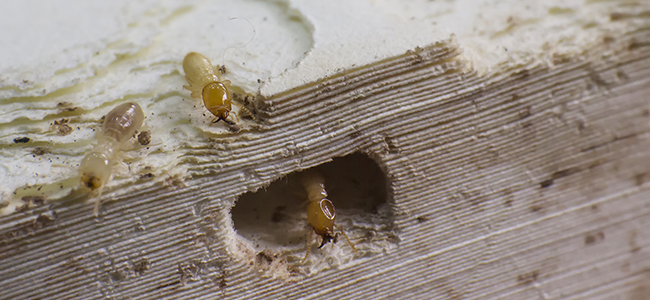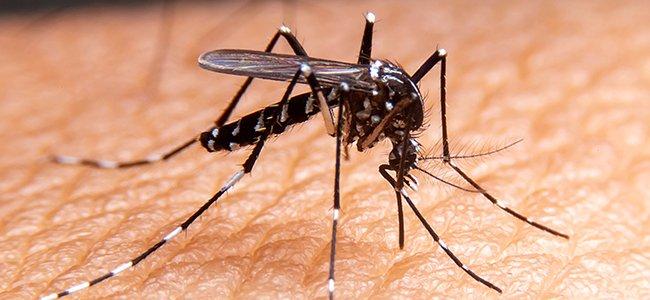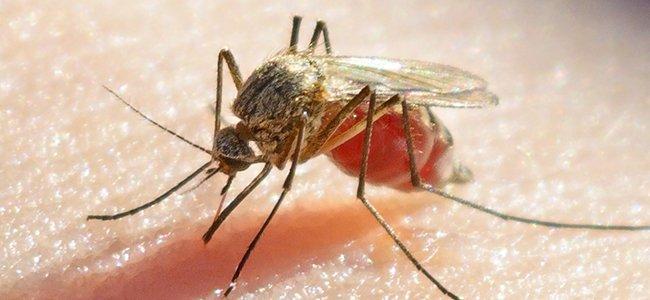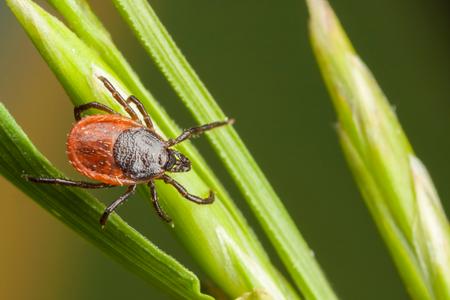
The Best Way To Protect Your Washington D.C. Property From Termites
10/20/2021
What's yellow and white and orange all over? None other than these sneaky insects with a penchant for wooden objects! ...
READ MORE >
06/21/2021

If you enjoy spending time outside in your yard, you’ve probably struggled with mosquitoes. These tiny pests thrive in Maryland during the warmer months of the year, and they can seem impossible to get rid of. If you’ve wondered what you can do to get the mosquitoes on your property under control, you’ll benefit from learning what Maryland property owners need to know about mosquito control.
You would be hard-pressed to find someone who doesn’t know what a mosquito is. They are a problem in all but the coldest regions of the world, so almost everyone has had firsthand experience with these tiny biting insects. However, identifying one that lands on your arm and knowing something about their biology are two different things.
There are thousands of species of mosquitoes, but far fewer than that are active in Maryland. Although the different species of mosquitoes have a lot in common, they do vary in what areas they prefer to spend time in and when they do the majority of their biting. Some do more of their biting during the day or at dusk, while others wait until the sun sets before they get to work. Furthermore, the coloring and markings differ from species to species. For example, Culex mosquitoes tend to be mostly grayish, while Asian tiger mosquitoes are black with bright white markings.
Other than their coloring, all mosquitoes share similar features. They have six legs, a set of antennae, a pair of wings, and mouthparts, also called their proboscis, made up of several separate needle-like stylets.
There are a couple of differences between male and female mosquitoes. The two most noticeable differences are that males have fluffier antennae than females and that females are the only ones that bite.
Mosquitoes feed mostly on nectar, honeydew, and other sweet plant juices; this makes up the totality of the male mosquito’s diet. However, female mosquitoes also require blood meals in addition to these foods because they need the protein to produce eggs. They typically lay somewhere around 100 eggs at one time.
In order for mosquito eggs to hatch, they must be immersed in standing water. Female mosquitoes lay their eggs in areas where water is already present, or in some cases, where they know that water will eventually cover the eggs. The eggs can last a long time before hatching, even lying dormant all winter, then hatching once the weather warms. Once the eggs hatch and become larvae, they eat bacteria, algae, and other organisms found in the water until they become adults.
It takes mosquitoes anywhere from four days to a month to develop into adults after they hatch. Once they become adults, the mosquito lifespan varies from species to species but usually lasts around two or three weeks.
There is no love lost between humans and mosquitoes, so you may not think there’s anything you would be particularly interested in learning about these pesky creatures; however, there are a few facts we find interesting. So just in case you ever find yourself on an episode of Jeopardy or in a heated game of Trivial Pursuit, you might find yourself needing to know one of the following facts.
Mosquito is a word that dates back to the 1500s, is of Spanish or Portuguese origin, and means “little fly.”
There are over 3,000 species of mosquitoes in the world. Around 175 species are active in the United States, and approximately 50 species are active in Maryland.
Of the active species in Maryland, three species are a primary concern due to their disease-spreading abilities.
About a fifth of the world’s population is affected by mosquito-borne diseases each year.
Over one million people worldwide die each year from mosquito-borne illnesses.
Only female mosquitoes bite because they require blood for egg production. Both male and female mosquitoes feed on nectar.
Mosquitoes are attracted to Type O blood more than the other blood types.
Most people focus on the irritation factor of mosquitoes. They make it hard to spend time outside, especially around dusk, because they come out by the hundreds and swarm around you, looking for a meal. You spend more of your time swatting them away than you do relaxing or eating or whatever you went outside to do. Then, even if you end up surrendering by going inside, you spend the next few days scratching at irritated, itchy bumps all over your body.
However, there is more to worry about when it comes to mosquitoes than how annoying they are. Mosquitoes are actually quite dangerous. In fact, as you may have surmised from the interesting facts we shared, mosquitoes are the deadliest creature in the world. They kill over one million people every year by spreading diseases through their bites.
Of all the diseases they spread, malaria is the one that is responsible for the most deaths. Although there are cases of malaria reported in the United States every year, most of them originate in other countries and are exhibited in people coming into the U.S. from those other countries where malaria is prevalent.
In the United States, it is far less common to die from a mosquito-borne disease, but it is still possible. The mosquito-borne illnesses that are most common here can range from mild to severe, and most recover fully. However, it’s still best to avoid becoming ill if possible since each illness can affect people in different ways and can be especially dangerous for those with weakened immune systems.
Some of the mosquito-borne illnesses that mosquitoes spread in the United States are listed below.
The West Nile virus is the most common mosquito-borne disease in the United States. In about 80% of cases, people develop no symptoms at all. The other 20% develop flu-like symptoms that include a fever and may be accompanied by body aches, headaches, vomiting, and more. These symptoms typically resolve on their own, although fatigue from the illness can last several weeks or months.
In rarer cases, a person can develop a much more severe illness from the West Nile virus that affects the central nervous system. These illnesses can include encephalitis or meningitis. Symptoms can include a high fever, stiffness in the neck, headache, confusion, convulsions, and more. These symptoms require medical attention. \
Although there is no antiviral to treat the West Nile virus, doctors will treat the symptoms that the virus has caused if a patient ends up in the hospital due to this illness. Of the people who develop severe symptoms from the West Nile virus, about 10% will die.
Dengue viruses are somewhat rare in the United States, but they do occur. They are more common in U.S. territories, especially Puerto Rico, than in U.S. states. According to the CDC, in 2020, Maryland had three cases of dengue, all related to travel.
About 25% of people who contract a dengue virus end up with symptoms. These symptoms can be mild or severe. Mild symptoms include a fever, rash, muscle, joint, or bone aches, or nausea and can last several days, usually clearing up within a week.
Of the 25% of people with dengue who develop symptoms, about 1 in 20 of them will develop severe symptoms. If symptoms become severe, they can be life-threatening within hours, so it’s important to seek medical assistance. Once the fever has abated, severe symptoms typically show up in 24-48 hours. These symptoms can include abdominal pain or tenderness, frequent vomiting, nose bleeds, and more. Severe dengue can lead to death if not quickly treated.
Chikungunya is fairly new to the United States, with the first case in the U.S. discovered in 2013. Most people who contract it develop symptoms, the most common of which are fever and joint pain. Other symptoms include muscle pain, headaches, and rashes.
Although it is rare for a person to die from chikungunya, symptoms can be severe, and the joint pain can last for months before fully resolving. The good news is that once you’ve had this virus, you are unlikely to get it again.
Zika virus caused a stir in 2016 when local transmission occurred in both Florida and Texas. Most people will have no symptoms or mild symptoms, including fever, muscle aches, headaches, and more. However, the real problem with the Zika virus is the danger to unborn babies.
If a pregnant woman contracts the Zika virus, she can pass it along to her baby, and it can then cause birth defects that affect the brain. The most common is microcephaly, which causes the baby’s brain to become underdeveloped. Depending on the severity of the microcephaly, babies can experience a range of problems once they’re born, including developmental delays, seizures, hearing or vision loss, and more.
Keeping mosquitoes off your Maryland property as much as possible is important, both for your comfort and your health. Doing so requires some changes. By understanding what attracts mosquitoes to your property, you can take steps to reduce those attractants and thereby reduce the number of mosquitoes in your yard.
The biggest factor that contributes to large mosquito populations on your property is standing water. Mosquitoes require water to breed, so if your property is dry, they won’t stick around very long. Of course, it would be nearly impossible to make your lawn a dry, barren wasteland, nor would you want to do that. But getting rid of as many areas of standing water and excess moisture as possible can make a huge difference in the number of mosquitoes you see around your property.
To do this, carefully inspect your property, looking for any area where water might collect. Many spots are easy to overlook, including plant pots, birdbaths, clogged gutters, children’s toys or playground equipment, pool covers, low areas on your lawn, and more. Eliminating these things will go a long way in making your yard less hospitable for mosquitoes.
Mosquitoes also like having areas where they can rest in the shade. Keeping your grass trimmed low and cutting back excess foliage will help reduce the number of places where mosquitoes can spend time resting, which will reduce their overall numbers on your property.
Although reducing standing water and resting areas will greatly help fight mosquitoes, it won’t eliminate them. For better overall mosquito control, American Pest offers mosquito control services that will dramatically reduce the number of mosquitoes on your property. We can treat the standing water and resting areas that you cannot eliminate to protect your family from harmful mosquitoes further. To learn more or request a service appointment, contact us today.

10/20/2021
What's yellow and white and orange all over? None other than these sneaky insects with a penchant for wooden objects! ...
READ MORE >

10/01/2021
Fulton, MD, September 30, 2021—American Pest, the leading provider in modern, preventive pest management throughout Maryland, Washington D.C....
READ MORE >

08/13/2021
The mosquito! You may not think much of them at first, but these blood-feeding insects may be the most dangerous creatures on North American lawns....
READ MORE >

07/15/2021
Each year, tick populations are on the rise. This is due to a multitude of factors, including climate change and increased tick habitat. Frederick ...
READ MORE >

Protect your home and family from nuisance and potentially damaging pests with a Preferred Care home pest control plan. Starting at $49/month

Don't let the bed bugs bite a second longer. Contact American Pest for the most comprehensive bed bug control in the industry. Learn More

Our certified rodent control pros will put an end to your frustration by getting rid of rats and mice inside your home. Learn More

Say goodbye to wood-destroying termites in your home when you contact American Pest for expert termite control. Learn More

Trust American Pest to deliver professional backyard tick control services that are guaranteed to get results. Learn More

Don't spend the warm-weather season indoors, find out how American Pest's professional treatments get rid of mosquitoes. Learn More
Fill out the form and recieve feedback in less than 5 minutes. For immediate service please call.